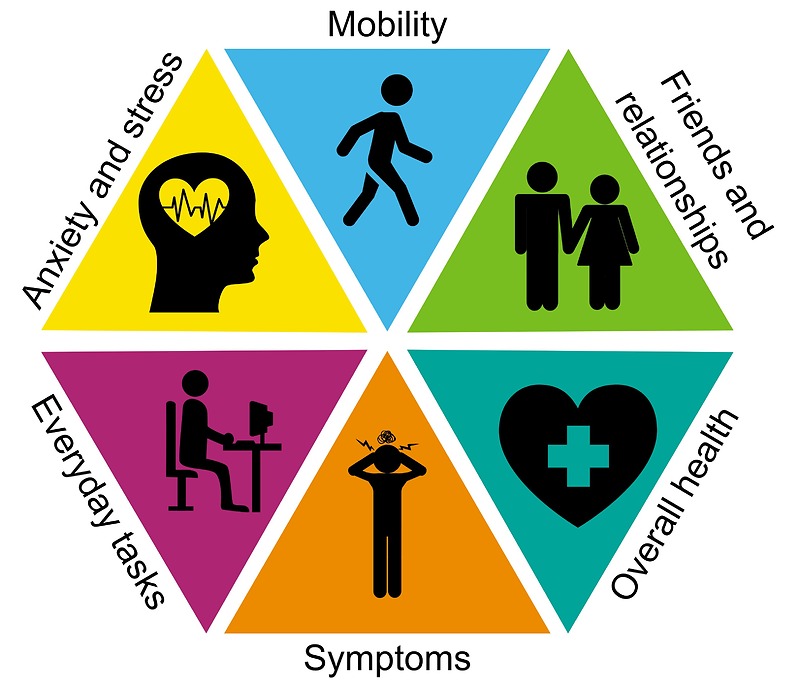Tracking And Responding To The Long Term Impact Of Cancer:
Nationwide Quality of Life Survey Launched September 2020


A nationwide survey has been launched to measure the quality of life of cancer patients 18 months after their diagnosis, to understand the impact of cancer and how well people are living with the disease.
The Cancer Quality of Life survey will ask patients about a range of concerns, including questions on emotional and social wellbeing; finances, and ongoing physical problems, such as tiredness and pain.
Currently, there are no national outcome measures (known as "metrics") that look at the quality of life of people diagnosed and treated for cancer. The information collected from the survey - which is an ambition within the NHS Long Term Plan for Cancer - will be used to create these metrics.
The survey will initially include people with breast, prostate or colorectal cancer, three of the most common cancers. Inviting people in these groups will generate sufficiently large numbers of responses to demonstrate the value of the survey. It will then be extended to people with other types of cancer from 2021 onwards. In turn, this will enable the right support to be provided to the growing number of people living with and beyond cancer.
It is expected that launching the Cancer Quality of Life Survey will bring a range of significant benefits. It will:
- lead to a step-change in the national debate on the importance of quality of life alongside survival
- help to benchmark quality of life so that those groups with the worst problems can be identified and targeted for improvement
- empower individuals to discuss their quality of life with their health and social care teams, and
- allow researchers access to rich data that can enhance our wider understanding of what impacts on quality of life after a cancer diagnosis.
Bradford ovarian cancer patient Val is one person who has welcomed the launch of the Quality of Life survey as a way of ensuring that patients receive the help and advice they need after treatment, tailored specifically to what matters to them and their own individual circumstances – personalised care and support.
“As soon as treatment finishes, you are left in the wilderness, with nowhere to go. Not having anywhere to go meant that I internalised things and became very isolated," said Val. "Having a project where I could have accessed support earlier means I wouldn’t have ended up in the state that I did, needing counselling and physiotherapy.
“It’s absolutely vital that we support patients with what they need after treatment has ended. Cancer treatment keeps you alive, but services like the Next Steps Clinic in Bradford, and the support they provide, help you to really live.”
You can read more about Val's story here
Learn more about the Bradford Next Steps Clinic here
Trusts will not need to identify patients as part of the Quality of Life survey. Quality Health has been commissioned to manage the survey invites and responses. Eligible patients will be identified by Public Health England using data from the Cancer Registry, and Quality Health will return survey responses to Public Health England. The data then becomes part of the Cancer Registry, where each person's survey response will be linked to data in terms of what happened to them in terms of cancer type, stage of disease, treatments completed.
Learn more about the Cancer Registry on the Cancer Research UK website
"We want to encourage as many people as possible to complete their survey so that the information collected fully represents our cancer population," said Rebecca Jowett, Living With and Beyond Cancer Programme Manager with West Yorkshire and Harrogate Cancer Alliance.
"This will enable us to use the results of the survey to influence where we focus our resources and support for the people of West Yorkshire and Harrogate who are living with and beyond a cancer diagnosis."
You can find out more information about the Cancer Quality of Life Survey on the dedicated website or contact Rebecca Jowett, rebeccajowett@nhs.net or Amanda Shaw, amanda.shaw2@nhs.net









